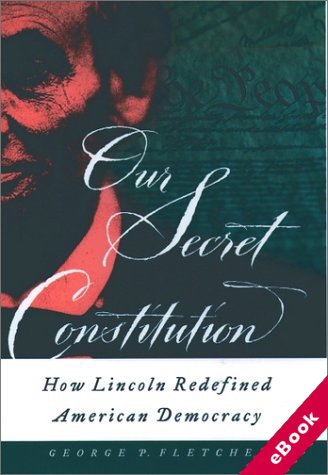We will be closed from 5pm Thursday 17th April for the Easter Bank Holidays, re-opening at 8.30am on Tuesday 22nd April. Any orders placed during this period will be processed when we re-open.

The device(s) you use to access the eBook content must be authorized with an Adobe ID before you download the product otherwise it will fail to register correctly.
For further information see https://www.wildy.com/ebook-formats
Once the order is confirmed an automated e-mail will be sent to you to allow you to download the eBook.
All eBooks are supplied firm sale and cannot be returned. If you believe there is a fault with your eBook then contact us on ebooks@wildy.com and we will help in resolving the issue. This does not affect your statutory rights.
Hardback edition is Out-of-Print. Use Next isbn for the Paperback edition
This study points to the Civil War as the most significant event in American legal history. The basic principles of the postbellum legal order, believes the author, are so radically different from the Constitution of 1787 that they should be recognized as a second American Constitution, establishing a Second Republic.
The first Constitution was based on the principles of peoplehood as a voluntary association, individual freedom, and a republican elitism. The guiding premises of the second Constitution - as articulated in Lincoln's visionary address at Gettysburg and enacted in the 13th, 14th, and 15th Amendments - were in contrast, organic nationhood, equality of all persons, and popular democracy. Thus, although we may yearn for continuity with 1787, in fact our values, commitments, and aspirations for America have radically changed. By finally recognizing our radical discontinuity with the first Republic, says Fletcher, we can put an end to debilitating arguments about the Founders' intent and consciously and energetically pursue the full implications of our true beliefs about what America should and can become.